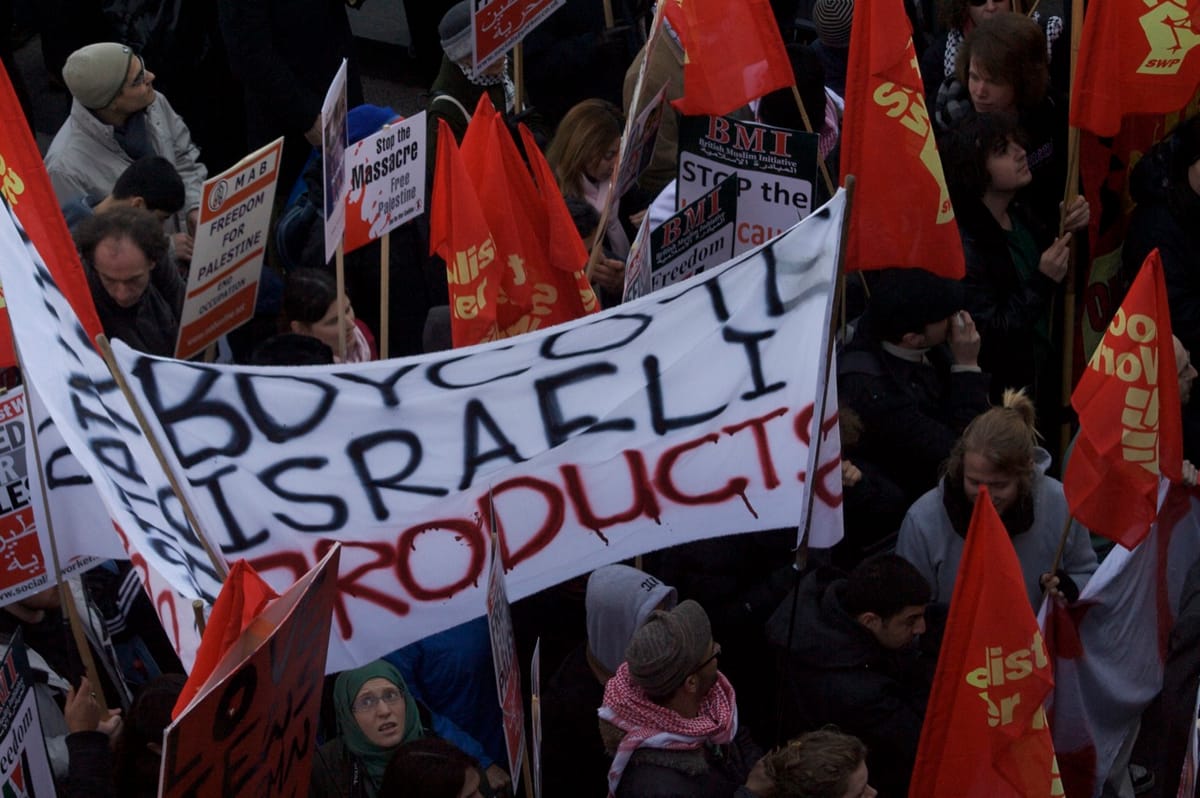Vote 'yes' to boycotting Israeli academic institutions

BDS Working Group
SOAS is buzzing with conversation about the academic boycott of Israel referendum, which is to be held on campus from 23-27 February. The referendum will be school-wide and will call on students, academics, and other staff members to vote in favour of boycotting Israeli academic institutions. The campaign aims to raise awareness of the political stakes of the Boycott, Divestment and Sanctions movement (BDS), which calls for the international isolation of Israel until it unconditionally terminates all forms of colonial practices against the Palestinians. Academic Boycott, which is part of the BDS call, is a necessary tactic in bringing down the Israeli system of oppression.
Academic Boycott seeks to target Israeli institutions that are a key part of the ideological and institutional foundation of Israel’s apartheid regime. This is because these institutions make up a knowledge-production apparatus that is complicit in Israel’s settler-colonial practices. The boycott is achieved by refraining from any academic cooperation, collaboration or joint projects with Israeli institutions such as conferences, workshops, and other forms of academic and cultural relationship; it is important to note that it does not target individuals, but institutions.
In the context of SOAS, this partly means cancelling study abroad programmes to Israel, which aim to whitewash Israel’s colonisation and denial of Palestinian rights. This is a particularly contentious point, because although study abroad programmes are seen as vital for those wishing to learn a foreign language, one should ask if, in this case, millions of Palestinians are put at a disadvantage by legitimising, and paying for, the very institutions that oppress them. For example, SOAS’ programmes are currently linked to the Hebrew University in Jerusalem, which is an institution that offers preferential treatment to Israeli soldiers who are engaged in the daily violations of Palestinian lives. Therefore, it is the responsibility of SOAS to ensure that its students learn the languages they need without legitimising colonial regimes such as that of Israel.
In 2006, Professor Baruch Kimmerling revealed in Haaretz newspaper that the Hebrew University was providing fast-track degree programmes for members of the General Security Service (Shin Bet), which is notorious for its torture of the Palestinians. The Hebrew University also produces knowledge that facilitates and furthers Israel’s violations of Palestinian bodies and livelihood. A recent example of such violations is the Israeli offensive on the Gaza Strip last summer, which resulted in the cold-blooded murder of over 2000 Palestinians. These massacres could not have been conceived had it not been for the technology produced on Israeli campuses.
The BDS movement advocates for co-resistance rather than co-existence, and demands that the masses everywhere fight colonial oppression. By promoting this demand, particularly in the form of academic boycott, the SOAS community has the chance to emphasise that co-existence is a natural result of, and conditioned on, co-resistance. Furthermore, the boycott is not about preventing conversations from taking place, but about cutting ties with institutions that are complicit in the normalisation of Israel and continuous violations of Palestinian lives and land.
By voting yes in the referendum, SOAS will take a stand and show solidarity with the Palestinian people. We, the BDS working group, believe that the Palestinian struggle for liberation from the colonial regime of Israel cannot be comprehensively understood outside the context of anti-colonial struggles globally. The struggle for justice in Palestine ties to wider struggles for justice, whether it takes place in Ferguson, Missouri, or Kashmir. It is through small actions at points of confrontation that change can be initiated. Therefore, we urge you to vote yes and to stand on the right side of history.




